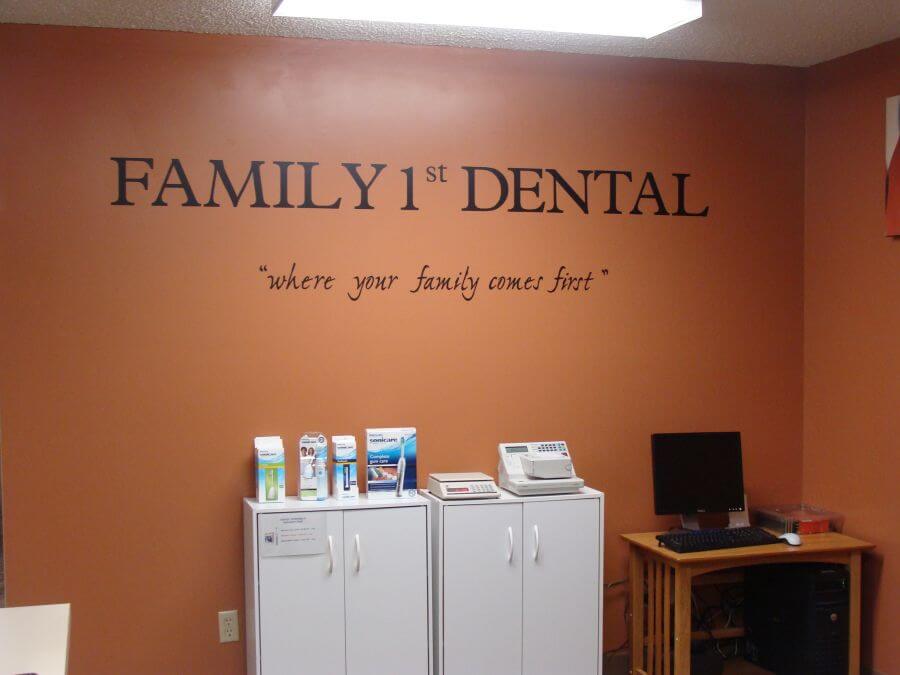Excellent oral care is one of the most important things you can do for your overall health. We want your healthy, beautiful smile to last you a life time, and that requires your dedication for at home care!
Tooth Brushing:
You should brush your teeth at least two times a day with an ADA approved soft bristle brush and toothpaste. The most important times to brush are before going to bed and upon waking up in the morning. Replace your toothbrush every 2 to 3 months. If you have questions about the quality of your toothbrush or how to properly brush your teeth, please talk with your dentist or dental hygienist about finding the right one for you at your next visit.
To improve your brushing technique immediately follow these simple tips until you can see your dentist.
- Brush at a 45 degree angle to the gums, gently, using a small, circular motion, ensuring that you always feel the bristles on the gums.
- Brush the outer, inner, and biting surfaces of each tooth.
- Use the tip of the brush head to clean the tongue side of your front teeth.
- Brush your tongue to remove bacteria and freshen your breath.
Electric toothbrushes are also highly recommended. They are easy to use and can remove plaque efficiently. Simply place the bristles of the electric brush on your gums and teeth, turn on, and allow the brush to do its job. Slowly move the brush over each surface of every tooth. All of our offices have electric toothbrushes and other dental care aids available, ask your office if you are interested in learning more about these items.
Flossing:
Flossing is the process of using a thread-like material to clean between the contact areas of teeth. You should floss daily because it is the best way to clean between the teeth and under the gumline. Flossing not only helps clean these spaces, it disrupts plaque colonies from building up, preventing damage to the gums, teeth, and bone.
To improve your flossing technique immediately follow these simple tips until you can see your dentist.
- Take 12-16 inches (30-40cm) of dental floss and wrap it around your middle fingers, leaving about 2 inches (5cm) of floss between your hands.
- Using your thumbs and forefingers to guide the floss, gently insert the floss between teeth using a sawing motion.
- Curve the floss into a “C” shape around each tooth and under the gumline. Gently move the floss up and down, cleaning the side of each tooth.
- Floss holders are recommended if you have difficulty using conventional floss. All of our offices have floss holders and other dental aids available, ask your office if you are interested in learning more about these items.
Rinsing:
Contrary to popular belief it is NOT necessary to rinse your mouth after you brush. In fact, if you don’t rinse you will continue to get the benefit of your fluoridated toothpaste for even longer. If you are using an over-the-counter mouthwash for rinsing, it is a good idea to consult with your dentist or dental hygienist on its appropriateness for you. And finally, if you are unable to brush after meals it’s best to rinse your mouth with water to help reduce plaque buildup and return your mouth to a neutral pH.
New Patients Welcome!
Visit Our Le Mars Dental Office
Dentist LeMars

Le Mars Location
29 Plymouth Street Northeast,
Le Mars, IA 51031
(712) 546-8823

Our Dental News
Dentist LeMars
Unveiling Lesser-Known Realities About Oral Cancer: What You Need to Know | Dentist 51031
Did you know that according to The American Academy for Oral Systemic Health, oral cancer claims one American life every hour of every day? It’s shocking, isn’t it? At Family 1st Dental of LeMars, we believe in shedding light on […]
Learn MoreCraze Lines: Understanding Their Nature and Impact on Your Dental Health | Dentist Near Me
Have you ever noticed faint lines on the surface of your teeth that resemble tiny cracks? You may be experiencing what’s commonly known as craze lines. While they might seem alarming at first glance, craze lines are often harmless and […]
Learn MoreHandling Dental Emergencies: What You Need to Know | LeMars Dentist
Accidents are inevitable, but knowing how to respond can make all the difference between saving and losing a tooth. A dental emergency, whether it’s a tooth injury or gum problem, requires prompt attention to prevent permanent damage. Here’s what you […]
Learn More




